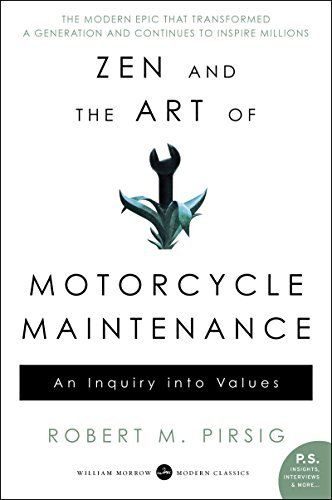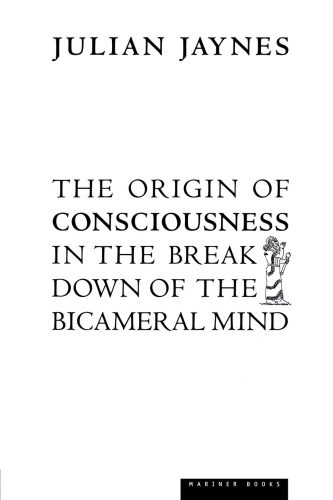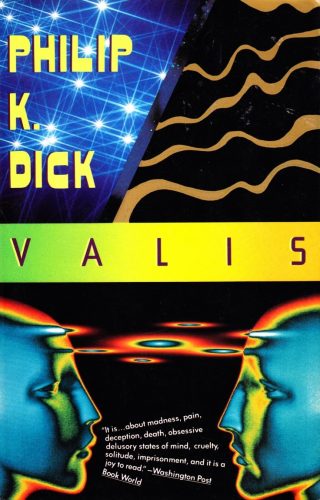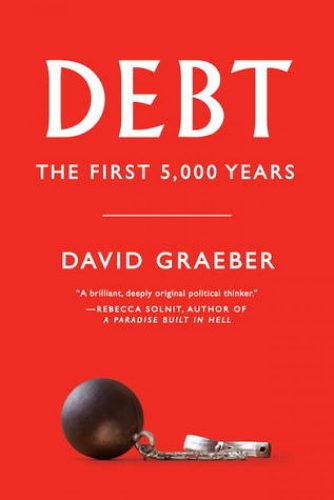You Will Defs Like these too
Life Video of The Day

Rund's Halloween Makeup TutorialOct.27.2020
New at The Modern East
Sign Up To Our Newsletter
[ninja_forms_display_form id=20]

In an age when social media rules and everybody is used to digesting things in small 2-3-minute doses, sometimes we forget the power of a good book. Here are 5 books guaranteed to mess with your mind!

Written by Robert M. Pirsig, who saw it rejected over a hundred times before it was finally published in 1974, Z&TAOMM (as it’s known to his fans) became a philosophical sensation and sold far more copies than any publisher could have predicted. A semi-fictionalized autobiography, the book retells Pirsig’s quest to understand the nature of Quality, a quest which eventually landed him in an asylum. The book is a philosophical journey as well as a psychological and spiritual one, and an absolute modern classic.

Published in 1976 by American Psychologist Julian Jaynes, this book is as fresh today as the day it was first published, and perhaps more relevant considering modern research has done nothing to disprove Jaynes’ work. Jaynes lays out an incredible hypothesis; that as recently as 3,000 years ago, our two cortical hemispheres were operating semi-independently, with one ‘mind’ guiding us through what the other mind heard as divine or ancestral voices. Jaynes builds on this and postulates that consciousness itself is a mental construct built on linguistic metaphors and that did not previously exist.

VALIS is an acronym for Vast Active Living Intelligence System and the name of the first book in what loosely became known as ‘the VALIS trilogy’ that author Philip K. Dick wrote before he died in 1982. The book was a departure from his usual writing in that it features a character called Horselover Fat who starts having reality-shattering visions of reality, and who the author reveals is none other than Philip K. Dick himself. The book is a fictionalization of events that occurred to Dick himself in March of 1974 and that he spent the remaining 8 years of his life trying to understand. It’s a roller-coaster of a story, equal parts science fiction, psychological introspection, and philosophical inquiry. Even in the admittedly strange world of Dick’s oeuvre, VALIS stands as a unique work.

Published in 2011, ‘Debt’ continues David Graeber’s streak of writing vitally seminal works. The author of ‘Fragments of an Anarchist Anthropology’ deconstructs the history of the very notion of debt. Graeber demolishes the traditional notion that money was created to make barter ‘easier’ and shows how the fiat value of money was rooted in war, armies, and occupation. Regardless of what you may think of Graeber’s conclusions, the book is massive in scope, fascinating in the wealth of insights it provides, and an essential read.

Written by prolific Italian author and philosopher Umberto Eco, Foucault’s Pendulum is, in a sense, the ultimate book about conspiracy theories. Riddled with esoteric references to alchemy, the Kabbalah, and conspiracy staples such as The Order of the Knights Templar, the book tells the story of three employees in a publishing house who invent their own complicated conspiracy theory for fun. Things escalate when real secret societies take the employees theory seriously and when the employees themselves forget that they created it as a joke. Often called ‘the thinking man’s Da Vinci Code’, Eco’s book is older, denser, and far more likely to mess with your mind!

